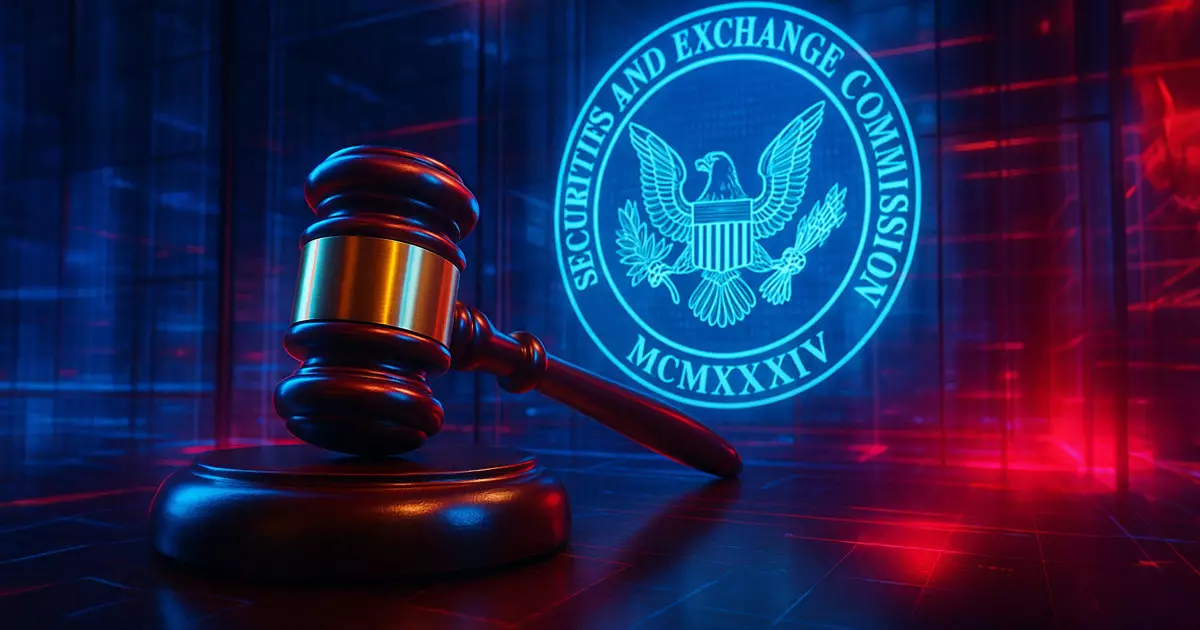The departure of Gary Gensler as chair of the Securities and Exchange Commission (SEC) was initially perceived as a potential turning point for the crypto industry. However, this optimism quickly dissipated upon realizing that the commission’s aggressive regulation-by-enforcement methodology remains firmly entrenched. Crypto enthusiasts and industry stakeholders had hoped for a shift toward a more nuanced regulatory framework; instead, they are confronted with an evolving landscape of state-level lawsuits that could very well stifle innovation and entrench fear among investors.
Justin Slaughter, a former SEC adviser and current vice president at Paradigm, emphasizes that the regulatory war continues unabated but has merely transitioned to state courthouses. This development is alarming, as it raises questions about the stability of regulatory standards. The crypto sector is now at the mercy of state authorities, each with different legal interpretations and frameworks, amplifying the confusion and uncertainty that has plagued this industry for years.
The Oregon Case: A Template for Future Litigation
The Oregon Attorney General’s recent lawsuit against Coinbase serves as a harbinger of what is possibly a wave of additional state-led actions. Oregon, often seen as a progressive bastion, took a step that surprised many by introducing its legal challenges against Coinbase—a move that further complicates the already fraught regulatory atmosphere. It’s noteworthy that Oregon did not initially align itself with the SEC in the multi-state coalition against Coinbase, highlighting a bizarre chasm in regulatory strategy, even among states with similar political ideals.
Slaughter points out that the legal language of Oregon’s complaint is eerily reminiscent of the SEC’s own arguments, suggesting that the state’s motivation is less about crafting a unique legal framework and more about flexing its regulatory muscles. However, the Oregon lawsuit takes a peculiar turn by reducing the use of the term “crypto asset securities,” a critical point of contention in conversations around the regulatory status of cryptocurrencies. This indicates a willingness to appease the industry while pursuing enforcement actions, but this diplomatic balancing is unlikely to yield comfort for crypto firms.
State AGs: Powerful Yet Unpredictable
One frightening reality of this shift toward state enforcement is the relative unpredictability that state Attorneys General (AGs) bring to the table. Unlike federal regulators equipped with extensive resources and personnel, state AGs often operate with limited manpower and expertise when it comes to complex crypto-related legal matters. This structural difference raises the stakes even higher; while federal regulations may offer a semblance of uniformity, state courts are known for their inconsistent interpretations and varying legal standards.
As Slaughter notes, the danger is that more states may follow Oregon’s lead, strategically crafting cases to remain anchored within state law and thereby circumventing federal oversight. This intentional maneuver serves to dilute the potential for a cohesive national regulatory framework. The emphasis on pursuing state-level actions poses ethical and procedural questions: How can firms navigate a legal landscape fraught with unpredictable rulings originating from disparate jurisdictions?
A Call for Comprehensive Federal Legislation
The ongoing legal skirmishes underscore the urgent need for Congress to establish a standardized regulatory framework that encompasses the complex needs of the crypto sector. Without such federal legislation, the industry faces the grim prospect of continuously battling a patchwork of state laws, each with its hefty burdens and unique approaches. Indeed, the lethargy on Capitol Hill is alarming. The longer lawmakers delay action, the greater the risk that cryptocurrency firms will be forced to operate under an inconsistent patchwork of local regulations that could significantly impede innovation and drive investment offshore.
Slaughter warns that every day Congress fails to act is another day that U.S. crypto firms are pushed toward the precipice of uncertainty and potential collapse. This state of flux is unsustainable and detrimental not only for companies but also for investors seeking to engage confidently in what many believe is the future of finance. As crypto advocates continue to encourage clarity and fairness in regulation, the specter of diverse state laws looms ominously, threatening to fracture an industry that desperately needs solidarity rather than disarray.


















